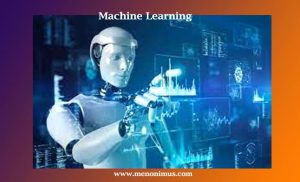Machine Learning
Machine Learning: A Journey into Intelligent Adaptation
Introduction:
Machine Learning (ML) stands at the forefront of technological innovation, representing a paradigm shift in how computers learn and adapt without explicit programming. This essay explores the essence of machine learning, its key concepts, applications, challenges, and the profound impact it has on shaping our digital landscape.
Understanding Machine Learning:
M L is a subset of artificial intelligence that focuses on creating algorithms and models capable of learning patterns and making decisions based on data. Unlike traditional programming, where rules are explicitly defined, ML systems learn from experience and improve their performance over time.
Key Concepts in Machine Learning:
Supervised Learning: In supervised learning, the algorithm is trained on a labeled dataset, where the input data and corresponding desired output are provided. The model learns to map inputs to outputs, making predictions on new, unseen data.
Unsupervised Learning: Unsupervised learning deals with unlabeled data. The algorithm explores the data’s inherent patterns and relationships without predefined output. Clustering and dimensionality reduction are common unsupervised learning techniques.
Reinforcement Learning: Reinforcement learning involves training an agent to make sequential decisions by receiving feedback in the form of rewards or penalties. It learns through trial and error, optimizing its actions to maximize cumulative rewards.
Applications of M L:
Machine Learning finds application in diverse fields, driving innovation and efficiency. In healthcare, ML aids in disease diagnosis and personalized treatment plans. E-commerce platforms use recommendation systems based on ML to enhance user experience. Fraud detection in finance, natural language processing in chatbots, and image recognition in autonomous vehicles are notable applications.
Challenges in M L:
While ML holds immense potential, it faces challenges. The quality and quantity of training data, algorithm bias, interpretability of models, and ethical considerations are prominent issues. Striking a balance between performance and fairness is crucial for responsible ML development.
Machine Learning and Decision-Making:
ML algorithms play a pivotal role in decision-making processes. From predicting consumer behavior to optimizing supply chain logistics, ML empowers organizations to make data-driven decisions, improving accuracy and efficiency.
The Human-Machine Collaboration:
Contrary to concerns about machines replacing humans, ML emphasizes collaboration. It augments human capabilities, automates routine tasks, and frees up time for creative thinking and problem-solving. The synergy between human intuition and machine precision is the hallmark of effective ML implementation.
The Future of Machine Learning:
The evolution of ML continues with advancements in deep learning, reinforcement learning, and transfer learning. As the technology matures, addressing ethical considerations, ensuring transparency, and fostering interdisciplinary collaboration will shape the future trajectory of machine learning.
Conclusion:
M L is not just a technological tool; it is a dynamic force reshaping the landscape of problem-solving and decision-making. As we navigate the era of intelligent adaptation, embracing responsible ML practices and harnessing its capabilities for societal benefit will be paramount. In the realm of technology, Machine Learning stands as a catalyst for innovation, fostering a future where human ingenuity and machine intelligence harmoniously coexist. 0 0 0.
N.B. The article entitled originally belongs to the book ‘Select Essays on Technology‘ by Menonim Menonimus.
You May Like:
- What is Website-A Comprehensive Study
- Wearable Technology
- List of Websites for Students
- Tips for Best SEO
Additional Searches:
- Essay on Technology
- AI and Machine Learning
- Technology Essay











